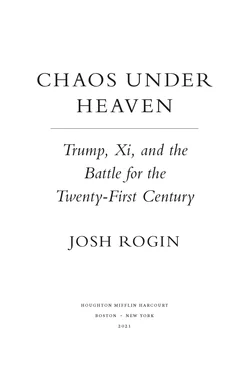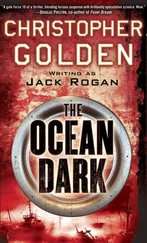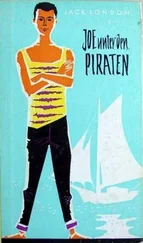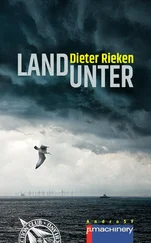I asked Davidson whether the United States and China were entering or perhaps had already entered a new cold war.
“I’m not calling this a cold war. But the idea of competition and how long it took in the actual Cold War, that may be what it’s all about,” he said. “We’ve been in the beginning stages for many years now, but we weren’t in the competition. Now we are in the competition.”
His answer was telling. It didn’t matter if we call it a Cold War with big capital letters, in his view. It’s the closest analogy we have in our collective modern historical memory. It’s not the same as the Cold War for the obvious reason that China in 2020 is not the same as Russia in 1950. If anything, the China challenge is orders of magnitude more difficult because of China’s massive economic power and our economies’ deep interconnectedness. But if you believed, as Davidson did, that China’s ambitions were in fact worldwide—that the CCP was trying to reshape the global order to fit its interests and that this posed an unacceptable threat to the security, prosperity, and health of free and open societies—then the comparison to the Cold War was useful, insofar as it helped one grasp the scope and scale and stakes of the challenge.
When I asked Pence the same question during a flight on Air Force 2 from Tokyo to Singapore in 2018, he told me it was up to China to avoid a new cold war. His point was that Beijing, not Washington, was changing its behavior in a way that was fueling the deep tensions between the two sides. In Bangkok in late 2019, Defense Secretary Mark Esper gave me a similar answer: “We’re not the ones looking for a Cold War. All we are asking is for China to follow the rules, live by the international norms, live up to your commitments and obligations,” he told me. “If China wants to do it, China can do it. But China is either choosing not to or ignoring it.”
For the CCP, the term “cold war” is a cudgel to swing at any American who dares criticize its actions—half gaslighting, half threat. It’s part of their information operation against us: Why would you crazy Americans want to start a cold war when all China wants is win-win cooperation? The term is so loaded and abused it is basically no longer useful. CIA deputy director for East Asia Michael Collins probably put it best during a panel at the 2018 Aspen Security Forum: “What they’re waging against us is fundamentally a cold war. A cold war not like we saw during the Cold War, but a cold war by definition,” he said. “The Chinese do not want conflict. They do not want war. They do not want conflagration. But at the end of the day, they want every country around the world, when it’s deciding its interests, its decisions on policy issues, to first and foremost side with China, not the United States, because the Chinese are increasingly defining a conflict with the United States and what we stand behind as a systems conflict.”
At the Bloomberg New Economy Forum in Beijing in November 2019, Henry Kissinger gave a speech in which he said the United States and China were in the “foothills of a cold war” that could be avoided by first completing the trade negotiations and then having a bilateral political discussion to minimize tension and points of friction around the world. His speech followed (and agreed with) that of Chinese vice president Wang Qishan, who said, “We should abandon the zero-sum thinking and cold war mentality.”
No matter how much Pompeo, Pence, Esper, Davidson, Collins, and the rest of the national security officials believed that the new Cold War with China was on, whatever you wanted to call it, there was one person who just didn’t see it that way—the president of the United States.
“There are many voices inside the administration,” Pillsbury said at the Aspen Institute in January 2020. “I don’t think the president wants a cold war with China at all.”
Pompeo’s China Play
Pompeo’s Long Telegram for China never got completed. After Skinner was fired, the work of it was delegated to Miles Yu, a historian on loan from the Naval War College and an affirmed China hawk. Although he never completed the project, his work found its way into a series of speeches Pompeo made over the course of 2019 and 2020 on China that focused on exposing Chinese malign influence in various sectors of American society. Yu crafted these with the help of Stilwell, Kissel, and David Feith.
In October 2019, Pompeo gave a speech called “The China Challenge” at a Hudson Institute gala (with Kissinger in the audience) in which he said, “It is no longer realistic to ignore the fundamental differences between our two systems and the impact, the impact that those two systems have . . . on American national security.” In January 2020, he spoke in Silicon Valley, warning tech executives that their partnerships with Chinese government-associated companies were being abused by the CCP under their “military-civilian fusion” project.
“So even if the Chinese Communist Party gives assurances about your technology being confined to peaceful uses, you should know there is enormous risk, risk to America’s national security as well,” he told them.
In February, Pompeo spoke at a meeting of the National Governors Association, to warn them that the CCP’s outreach to local and state officials across the United States was part of the work of the United Front Work Department. He referenced a report by a Chinese think tank that rated each of the fifty governors as “friendly,” “hardline,” or “ambiguous.”
“Governors can ignore orders from the White House . . . and State-level officials enjoy a certain degree of diplomatic independence,” the report stated. That think tank itself is reportedly associated with the United Front Work Department.
Pompeo had decided early on that he wanted to be on the leading edge of the administration’s China approach in the most hawkish manner practically available to him. But he had to deal with the reality that Trump didn’t agree with that approach and didn’t want to provoke Beijing unnecessarily during the ongoing trade negotiations.
Pompeo had a list of thirty or so China-related moves he wanted to make, ranging from Huawei sanctions, to sanctions on officials responsible for abusing the Uyghurs, to clamping down on the Chinese media and intelligence presence inside the United States. He gave each move a rating from 1 to 10, 1 being the most benign and 10 being the most aggressive. Uyghur sanctions, for example, were a 7. In the environment inside the administration in the middle of 2019, that was too high a number, so those sanctions sat on the shelf for months and months.
Pompeo knew Trump didn’t want to hear about Taiwan or Hong Kong, which was already heading into what would become a full year of prodemocratic street demonstrations. He was pushing where he could, without hitting the ceiling of what Trump would allow—and without really knowing where that ceiling was at any given time.
As his public profile on the China issue grew, the Chinese government and its media made him into their favorite target, calling him an arrogant, hysterical, reckless troublemaker hell-bent on steering the relationship into a new cold war. But domestically, Pompeo was actually ahead of the political curve. Everybody knew he was building a case for running for president in 2024. His prospective competitors like Nikki Haley had to rush to make sure they did not get outflanked on the China issue, as more and more Americans (especially Republicans but not only Republicans) came around to Pompeo’s view.
As a top White House official told me, “The most interesting thing about Pompeo is that he made a political calculation almost before anyone else that taking a tougher stance on China was going to be the smart political move.”
Читать дальше











